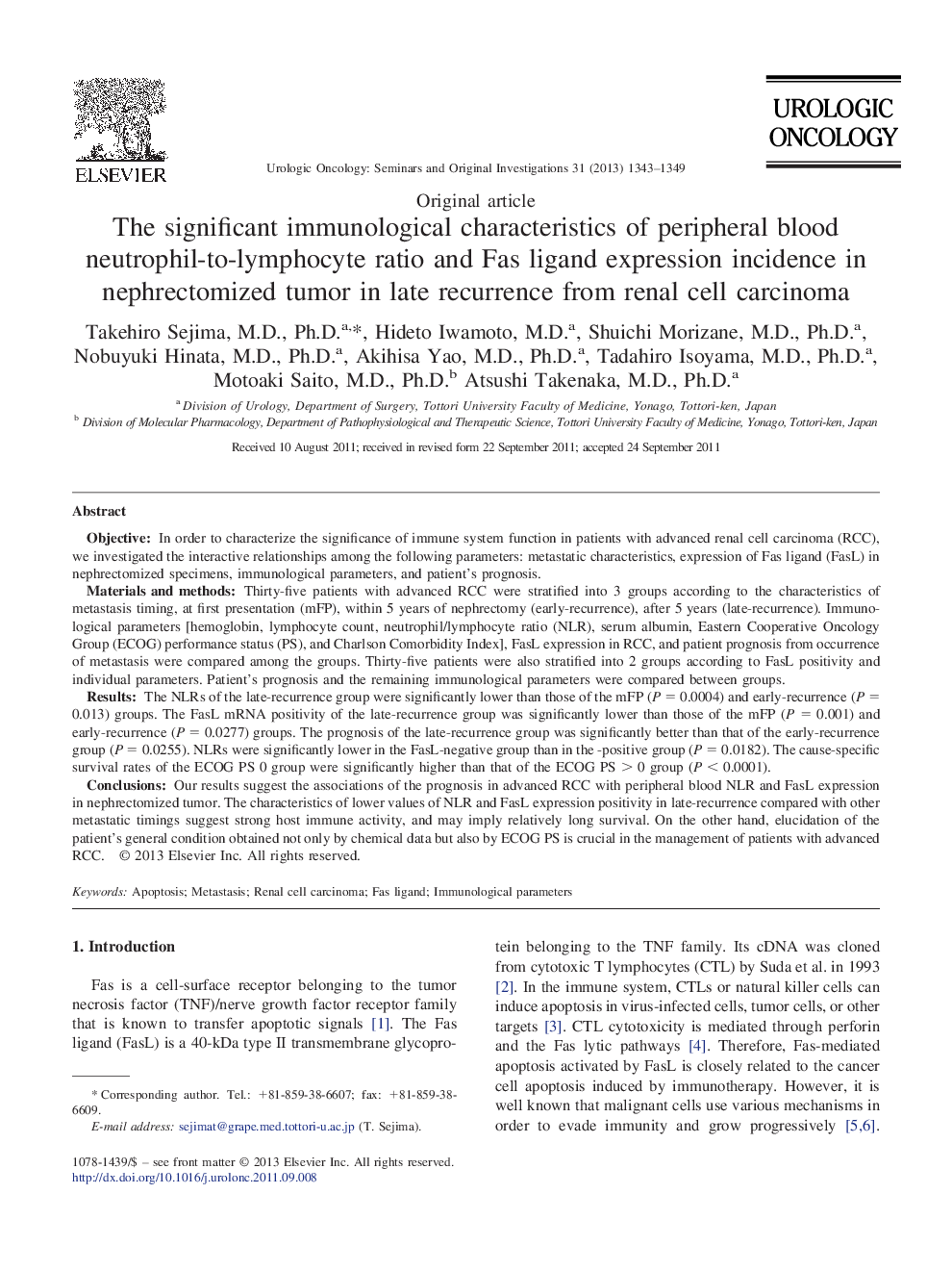| Article ID | Journal | Published Year | Pages | File Type |
|---|---|---|---|---|
| 3999936 | Urologic Oncology: Seminars and Original Investigations | 2013 | 7 Pages |
ObjectiveIn order to characterize the significance of immune system function in patients with advanced renal cell carcinoma (RCC), we investigated the interactive relationships among the following parameters: metastatic characteristics, expression of Fas ligand (FasL) in nephrectomized specimens, immunological parameters, and patient's prognosis.Materials and methodsThirty-five patients with advanced RCC were stratified into 3 groups according to the characteristics of metastasis timing, at first presentation (mFP), within 5 years of nephrectomy (early-recurrence), after 5 years (late-recurrence). Immunological parameters [hemoglobin, lymphocyte count, neutrophil/lymphocyte ratio (NLR), serum albumin, Eastern Cooperative Oncology Group (ECOG) performance status (PS), and Charlson Comorbidity Index], FasL expression in RCC, and patient prognosis from occurrence of metastasis were compared among the groups. Thirty-five patients were also stratified into 2 groups according to FasL positivity and individual parameters. Patient's prognosis and the remaining immunological parameters were compared between groups.ResultsThe NLRs of the late-recurrence group were significantly lower than those of the mFP (P = 0.0004) and early-recurrence (P = 0.013) groups. The FasL mRNA positivity of the late-recurrence group was significantly lower than those of the mFP (P = 0.001) and early-recurrence (P = 0.0277) groups. The prognosis of the late-recurrence group was significantly better than that of the early-recurrence group (P = 0.0255). NLRs were significantly lower in the FasL-negative group than in the -positive group (P = 0.0182). The cause-specific survival rates of the ECOG PS 0 group were significantly higher than that of the ECOG PS > 0 group (P < 0.0001).ConclusionsOur results suggest the associations of the prognosis in advanced RCC with peripheral blood NLR and FasL expression in nephrectomized tumor. The characteristics of lower values of NLR and FasL expression positivity in late-recurrence compared with other metastatic timings suggest strong host immune activity, and may imply relatively long survival. On the other hand, elucidation of the patient's general condition obtained not only by chemical data but also by ECOG PS is crucial in the management of patients with advanced RCC.
